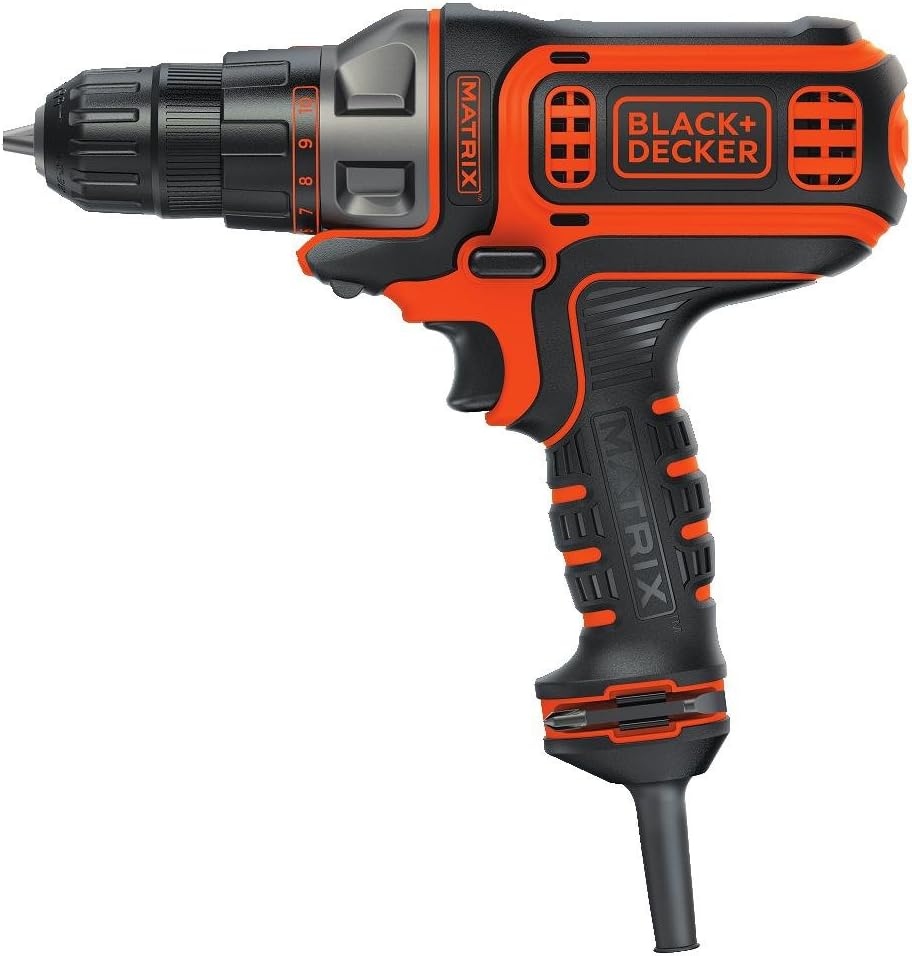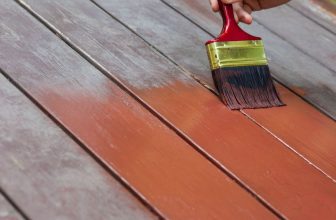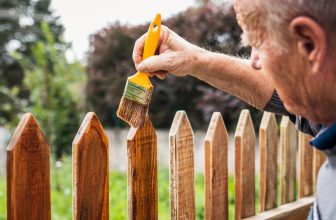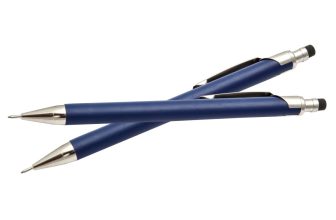Contents
Some people may enjoy the portability of a battery-powered drill, but the power and torque capability of corded options make them more versatile for different projects.
Some are light and designed for comfort, while others feature added abilities like impact driving or torque adjustments for driving long screws.
We tested numerous corded drills for performance and put together this list of reviews and a comprehensive buyer’s guide to help you decide which one is best for your purposes.
Best Corded Drills – Our Top Picks
BuildEazy.com may earn a commission if you purchase a product through one of our links.
This drill from BLACK+DECKER, a tool manufacturer specializing in budget tools for casual woodworkers, is our overall favorite compact drill. It weighs just 3.31 pounds and is easy and comfortable to use.
Despite it being a lightweight drill, it still provides plenty of power for most applications with its 4-amp motor. You will find that it lacks the driving force of higher-powered options, so you may have some difficulty driving into thick pieces of wood. However, drilling won’t be an issue for most workpieces, given the drill’s 1,200 RPM speed.
It includes 11 clutch options to optimize your speed for different applications, like drilling through softwood or driving screws into hardwood. This feature also helps avoid stripped screws from overdriving.
It has a toolless chuck, so you can change bits quickly just by holding the cam and pulling the trigger. The chuck accepts shafts up to ⅜” thick, so you can use a wide array of bits for different jobs.
It’s made mostly out of plastic and rubber components, but it still feels very durable, and we’re confident it will power through many projects.
Best of all, it’s one of the most affordable compact drills available, so you can get a reliable, capable tool even if you’re on a budget.
This drill has BLACK+DECKER’s signature “Matrix Quick Connect System.” This technology allows you to detach the chuck and replace it with different tool heads, effectively turning your drill into a jigsaw, sander, router, or circular saw. You will need to buy the attachments separately, but the drill will help you save money on additional tools.
DEWALT DWD115K
DEWALT is best known for tools that are durable and capable enough for commercial applications, and this drill is no exception. It features a very strong, 8-amp motor that can handle drilling and driving into just about any material. It outperforms most drills in its price range in terms of power.
You can’t lock the motor speed, but the trigger is analog, allowing you to adjust the RPM up to 2,500 manually. It can be a bit challenging to control and get the ideal speed for your workpiece, but you can adjust it in the middle of drilling and won’t need to stop working to make changes.
It features a toolless chuck, so you can change between different sizes of drill bits as needed. The chuck can widen up to ⅜” and will accept all bits under that diameter.
The drill is very comfortable to hold, even though it weighs a hefty 6.54 pounds. It can be somewhat challenging to maneuver with one hand, given its weight, but there is a rubber grip on the rear of the drill for safe two-handed operation.
DEWALT made this out of hard plastic and metal materials, and it feels incredibly durable. As is the case with most DEWALT tools, we feel this drill is very reliable and will continue to perform well even after years of abuse in your workshop.
Despite being powered by a brushed motor, which tends to be significantly louder than brushless alternatives, this drill is relatively quiet during use.
RIDGID R7111
This drill is made by RIDGID, a manufacturer of mid-range tools that are often durable and capable enough even for serious hobbyists.
It has a rugged, 8-amp motor, so it provides plenty of power for most woodworking projects, and it’s even suitable for industrial or commercial applications. Hardwoods and thick workpieces will be easy to drill through or drive into, and it can handle drilling through metal as well.
The motor’s ability to drive screws is complemented by a stabilization handle that you can use to keep control of the drill even in high-torque situations. You’ll feel confident and secure using the tool even when its motor is working at its highest capacity.
The handle not only adds support while you’re drilling, but you can also rotate it 360 degrees. The adjustability lets you adapt to different drilling angles for any project.
It has a keyless chuck, so you can change bits on the fly while you’re working to make transitioning from drilling to driving effortless. The chuck is also larger than most at ½”, so you’ll be able to use most drill bits.
The drill is somewhat heavy at 6.5 pounds, but the second handle makes maneuvering more or less effortless during operation.
It has a slower motor than many other drills at just 850 RPM. As a result, it may take you slightly longer to drill through hardwood or metal than higher-speed options, but the driving ability makes up for the slower speed, in our opinion.
RIDGID backs this drill with a limited 3-year warranty and a 90-day satisfaction guarantee, so you can be confident in your purchase and the durability of the tool, given the manufacturer’s trust in their product.
PORTER-CABLE PC600D
PORTER-CABLE prides itself on producing high-powered tools, and this drill is a testament to their commitment to capability and job versatility. It features a 6.5-amp motor that will power through just about any woodworking project. It can quickly drill through and drive screws into thick material, hardwood, and some softer metals.
The motor is fast in addition to being powerful, and it’s capable of 2,500 RPM to speed up your work.
It doesn’t have a speed adjustment knob, so you won’t be able to set your desired RPM. However, you can use the trigger depth to control it from a dead stop up to its maximum speed, so you can make adjustments as needed in the middle of a job without having to stop.
Additionally, there is a trigger lock to make extended use more convenient, and it lets you set a specific depth and speed to reduce fatigue during lengthy jobs.
It has a toolless chuck, so changing bits is very straightforward and takes minimal time away from your work. The chuck accepts bits up to ⅜” for tackling a variety of different jobs.
The casing on this drill is hard plastic and metal, so we’re confident it will stand up to abuse in your workshop or on job sites.
Despite feeling like a hefty, long-lasting product, it weighs just 4 pounds, so it’s effortless to use and maneuver while working.
The grip is also very comfortable and ergonomic, and it allows two-handed operation for better control and confidence during operation.
Bosch GSB 19-2 RE
Bosch is well-known in the woodworking industry for making tools powerful enough for professionals, and this drill fits nicely into that category.
It houses an extremely powerful motor that provides up to 26 foot-pounds of torque. It’s capable of drilling through or driving into just about any material, including all wood types, steel, other metals, and masonry. Of course, it will provide any woodworker with ample power for their projects.
Its capability and versatility make it the ideal choice for professional and industrial use. It’s suitable to use as an impact drill as well, given the torque it can provide.
The maximum motor speed is just 1,000 RPM, so drilling will take a bit longer than it would with faster motors. However, we feel the speed trade-off is well worth the power capacity.
You won’t be able to lock the speed with a dial like on some other drills, but the trigger is analog and allows for manipulation while working. There is a trigger lock to maintain a manually-set speed to make prolonged use more comfortable.
It has a toolless chuck for easy bit changes, and the chuck accepts shafts up to an impressive 1.3”, so you can use this drill with most bits that are available.
An important thing to note about this drill is that it requires a 220V outlet. This is the standard voltage in Europe and Australia, but in the U.S., most homes only have 220V outlets for stoves or driers. Make sure you have a dedicated, high-voltage outlet you can use for this drill before purchasing it.
The drill is hefty at 8 pounds, so it can be a bit challenging to maneuver. However, it includes a stabilization handle for better control and safety, and two-handed operation makes moving the drill around much more comfortable.
The stabilizing handle is adjustable to adapt to different positions or those who are left-handed, and the handle includes a depth stop for jobs that require precise drilling depths.
Hitachi D10VH
This drill from Hitachi, a company known for durable, contractor-grade tools, has a capable, 6-amp motor that can provide 9 foot-pounds of torque. It’s ideal for most woodworking applications.
The motor rotates at an impressive 2,500 RPM, so it’s fast in addition to being high-powered.
It’s relatively small and very lightweight at just 3.1 pounds, so it’s easy to maneuver around your workpiece as needed.
The drill casing is a hard plastic that feels like it will stand up to the test of time. There is also a strong rubber material on the handle to reduce vibration while you’re drilling and improve comfort.
It has a toolless chuck, so you can swap bits in and out without taking too much time away from your project. It accepts standard bits up to ⅜”, which is generally suitable for most hobbyist woodworkers.
There is a speed dial embedded in the trigger, which we found to be somewhat inconvenient to use. It is tiny and doesn’t allow for precise adjustments. We found that manually adjusting the speed using the analog trigger is a more straightforward option, mainly because there is a trigger lock that lets you hold any speed you set.
Aside from the speed dial, every adjustment on this drill is easy to use and allows you to focus more on your project than you do on managing the tool.
Buyer’s Guide
While there is no such thing as the perfect corded drill, you can choose one that is optimized for your purposes and will serve you best in your workshop.
Cordless vs. Corded
First, knowing the differences between cordless and corded drills is essential and will ensure you get a tool capable of handling your projects.
The main difference between the two drill types is the power source. Corded drills have power cords that you’ll need to plug into an outlet. The cord tethers you while you’re working, so these drills are less portable, which may cause problems on some remote job sites. This can be inconvenient in some cases. However, they also never need to be recharged and will always be ready to tackle your job reducing downtime and maximizing efficiency.
Cordless drills use rechargeable battery packs that make them fully wireless and highly portable. They can be used anywhere and won’t limit movement around your workspace. However, the batteries can die or run out mid-job, and you need to remember to recharge them regularly. Batteries are often sold separately from cordless drills and add to the cost of your tool.
Another difference between the two drill types is the power and torque capability. Corded drills generally provide more power and more foot-pounds of torque, making them more versatile and suitable for deeper drilling and driving into thick pieces of stock or hardwoods.
Corded drills are usually more heavy-duty, and are often best for reliability and power to get through any job. They’re ideal for serious hobbyists and can be professional-grade. Cordless drills are best for light-to-medium use and are most suitable for “weekend warriors” or those who use their tools for light-duty projects.
Clutch
Many corded drills include a clutch that controls the maximum force placed onto the drill bit. They will ramp up to the set force and then spin freely to prevent wrist injury and over-driven or stripped screws.
An adjustable clutch lets you dial in the ideal setting for your workpiece. For example, a high maximum force is perfect for driving a long screw into a thick piece of stock, while a low maximum force can be best for drilling small holes or driving into softwoods like pine.
Choosing a drill with an adjustable clutch can help you adapt your tool to different applications on the fly.
Chuck Size
The chuck on a drill is the tightening mechanism that holds your bit in place. The clamps inside your chuck have a maximum bit size they can accept when they are fully opened. Most drills accept up to ⅜” bits.
Some drills, like the RIDGID R7111, are only capable of holding bits up to ½”, while others, like the Bosch GSB 19-2 RE, can take bits that are larger than 1” in diameter.
Larger chucks can open your tool up to additional bits and will let you drill bigger holes. This flexibility can be useful for some people, especially those who use their tools in a professional or industrial setting. Other woodworkers may never need a bit larger than ⅜” in diameter and will be satisfied with the most common drill bit sizes without the need for larger ones.
Rotation Speed
Corded drills are rated at specific speeds that measure the number of revolutions per minute (RPM). You can find a variety of speeds ranging from under 1,000 RPM and often up to 2,500 RPM.
Higher speeds are often indicative of a higher-powered motor, but they will also drill through material more quickly and make for faster work.
Additionally, a high motor speed can help put less strain on your drill’s motor. The faster your bit rotates, the more “tapping” action it has at its head. This means that the sharp edges of your bit will be digging into your workpiece faster, which means you won’t have to push the drill as hard into your material to get through it. Higher motor speed usually means less friction on the bit, which means less strain on your motor.
Speed Control
Rotation speed is often the maximum speed your drill can rotate, but many corded drills offer you the opportunity to control the speed up to the highest-possible RPM.
Speed control can be useful because it lets you maximize your drill’s efficiency for different work materials. A high RPM may be ideal for drilling into hardwoods, metal, or masonry, but a lower RPM offers better control when driving or drilling through softwoods or thin workpieces.
Some drills have dials you can turn to set the maximum speed, while others have analog triggers that let you modulate speed with the trigger depth. Dials can be more convenient for some because they require less focus on how quickly your drill is spinning during operation. Some woodworkers prefer trigger-controlled speed so that they can make adjustments in the middle of drilling or driving.
Motor Power
The power of your drill’s motor is a crucial feature and can determine what types of wood or other material you can handle with your drill. Power is often expressed in terms of amps, with higher-amp motors being more capable.
If you’re a casual woodworker or just work with softwoods or plywoods, a low-amp motor can save you money and be perfectly adequate. High-amp motors are better for serious hobbyists and professionals, as they can handle more frequent use and can power through harder materials like hardwoods, concrete, and even steel.
Grip
You should consider the number of handles for control when choosing a drill. Many drills have a single grip for one-handed use, which is adequate for most woodworking projects.
However, heavier-duty jobs, including commercial applications and harder materials, can be challenging for one-handed operation. These drills usually include either a handle at the back for adding pressure to the drill or a stabilizing handle at the front for the most stable two-handed operation.
If you plan to use your drill for light-duty use, a single grip will likely suffice. Heavier-duty jobs are best tackled with a two-handed grip.
Size/Weight
The size and weight of your drill can affect how you use it and how easy it is to maneuver around a workpiece.
Small, compact drills are ideal for working in tight spaces but often have less powerful motors due to less space to house them. Larger drills can be tricky to maneuver while working but are usually more powerful because they have room for larger, heavier-duty motors.
Similarly, weight and capability are often trade-offs. Lightweight drills are easy to maneuver and use for light-duty jobs. They can be less durable because they’re made of cheaper materials as well. Heavier drills can be harder and more uncomfortable to handle, but they’re generally more powerful and can stand up to more physical abuse in your workshop.
Durability
Lastly, you should consider how durable a drill is before purchasing. Cheaper options tend to be constructed with lower-quality materials, while more expensive or contractor-grade drills are built to last and will power through more projects and materials.
Hard plastic, metal, and high-quality rubber are generally the materials on a drill’s casing that indicate good durability. Cheaper plastic often lends itself to a lighter weight but usually means the drill won’t have as long of a lifespan.
Entry-level products may be sufficient for those who use their tools infrequently, but committed hobbyists or those who use their tools professionally will want to opt for high durability and quality construction materials.
Frequently Asked Questions
Are Corded Drills More Powerful?
Compared to cordless drills, ones that are corded are more powerful because they are directly connected to an unlimited amount of electricity instead of having to rely on a battery.
A corded drill is also more durable as it can keep going whereas a cordless drill only lasts about two hours before you have to recharge its battery.
Having a corded drill keeps you productive as well as you don’t have to stop and recharge the battery whenever it runs out.
If you are using it frequently, you may find that your productivity takes a bit of a plummet, so it’s worth picking up more than one battery if they can be removed.
It may be surprising, but corded drills are cheaper than cordless ones even though they are more powerful.
Corded drills do take up more space than cordless ones though because they have a lot of cables that you have to keep neatly bundled away.
However, there are some cordless drills on the market that are kitted out with batteries that can make them almost as powerful as a corded drill, but they still are not able to provide the same level of torque which plays a big part in a drill’s performance.
Even though corded drills are more powerful, cordless ones still have their advantages so don’t write them off completely just yet.
One of these is obvious which is that you are not limited with where you can go with a cordless drill as you don’t have to be plugged into an outlet at all times.
This also comes in handy when you are working in spaces that are tight and awkward as you can move around however you like without worrying about the cable.
Cables can also cause a lot of accidents with people who aren’t looking where they are going but a cordless drill eliminates this as well.
If you are only looking for a drill that will take care of bits and pieces around the house such as basic drilling jobs, then a cordless drill will be able to provide you with everything you need.
Do Corded Drills Have More Torque?
Torque refers to the force that causes rotation and corded drills tend to have more of it than cordless ones due to their high electrical supply, making them more powerful.
Having a drill with more torque allows you to do things such as drill into rigid materials such as concrete and use larger screws.
Adjusting the torque on your drill will play a big part in how it performs and is pretty easy to do.
You will want to adjust your true depending on what you are using your drill for as using too much power when drilling in a screw can strip the screw out or strip the threads in the hole that is being driven into.
All you need to do first is locate the dial at the front of the drill which is just behind the chuck. To adjust the torque, adjust the dial by spinning it, the lower the number the lower the amount of torque.
Can You Drive Screws With A Corded Drill?
In short, yes you can use a corded drill to drive in screws as long as you choose a screw driving bit that is compatible with the screw that you will be turning.
You will need to focus on the alignment of the screws and the drill so that there is a straight line from the tip of the screw to up your arm.
If you start drilling the screw straight, the finished result should be straight.
To get the screw started in straight, you can use a technique called jabbing which is when you place the screw on the bit before jabbing it into the wood.
This will give you a bit of thread started, allowing you to apply some power to the drill with the screw starting off straight.
Wrapping Up: Which Corded Drill is Best?
No drill is perfect, especially because different power capabilities and functionality can be ideal for different woodworkers and projects. Hopefully, our reviews and buyer’s guide will help you choose the drill that is best suited for your needs.
Our top pick for an excellent blend of power, functionality, and versatility is the BLACK+DECKER BDEDMT Compact Drill. It’s lightweight and comfortable to use but still provides plenty of power and functionality to handle most woodworking applications.













